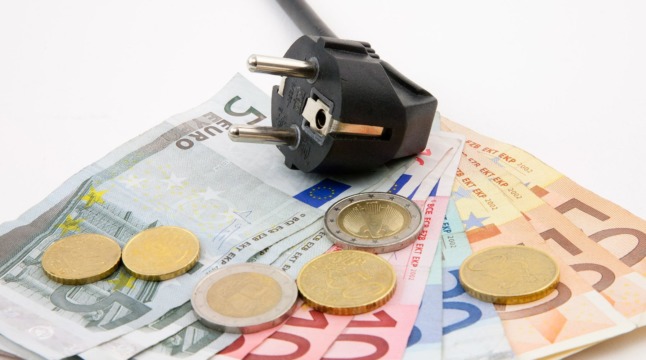According to the Federal Ministry of Economics, the price of electricity in Germany is currently at a record high of 32.63 cents per kilowatt-hour, and gas prices are being driven ever higher by restricted supplies and the Russian invasion of Ukraine.
If you think you might be missing out on a better deal, here’s how you can secure the best tariff for your home by switching to another supplier.
Easier than you think
Some may be put off by the idea of changing energy suppliers due to concerns that the process will be complicated and that they may be left without energy while changing providers. But in Germany, there is a legally guaranteed basic supply, meaning you will be supplied by the so-called basic supplier in your area during any changeover period. (Don’t switch too close to the deadline though, as this can get expensive.) Also, technically speaking, a change of supplier does not change the electricity or gas for your household, meaning no one has to come to your home and the change is free of charge.
Contract termination
The time at which you can change your electricity or gas supplier depends on your current contract. Different notice periods apply depending on whether you are a customer of a basic supplier, an alternative supplier or have a special right of termination.
If you are a customer of a basic supplier and have never changed your provider, you can change your gas or electricity supplier at any time. In this case, you have two weeks’ notice before the contract with your new supplier can start.
If you are a customer of an alternative provider – which is the case with most people – you are bound by certain deadlines and you will need to pay attention to the minimum contract period and the notice period in your contract.
READ ALSO: Moving house in Germany: 7 things you need to know about setting up utility contracts
Many contracts will run for a minimum of one year, after which they are automatically extended. In this case, it is very important to pay attention to the notice period in your contract, as, once the period expires, the contract will be extended by another year. You should therefore act in good time and can initiate the change of provider up to six months before the contract expires. The termination of the old contract is usually taken over by the new supplier, who then directly takes over the supply as soon as the old contract has expired.
In certain circumstances, a so-called special termination right can apply – meaning you can terminate your contract without having to observe the usual contract or notice periods. Moving house, for example, is a special situation for which this rule applies. Another is if your provider announces a price increase, in which case you have the option of exercising a special right of termination. In this case, the notice period is usually two weeks from the announcement In these cases, it is best to send the termination notice yourself, rather than getting your new provider to do so on your behalf. You can inform the new provider that you have cancelled your current contract yourself by adding a note to the order.
The new electricity or gas contract usually comes into effect as soon as the new supplier has sent you a contract confirmation with the expected start of delivery.
The previous provider then has up to six weeks after the end of delivery to issue a final invoice.
Search for other offers
There are numerous electricity price comparison sites that you can use to find out if you are paying too much for your energy: Check24 and Verifox are two of the biggest ones.
The websites offer tariff calculators, which enable you to see what other suppliers offer for the same level of consumption in your area. To use these calculators, you should have your postcode and your annual electricity consumption at hand – which you can find in your last gas or electricity bill.
READ ALSO: How Germany plans to help households cope with rising costs
When researching electricity and gas contracts, you should not only pay attention to the prices, but also carefully check the terms and conditions of the contracts on offer. The shorter the terms and periods of notice, the more flexible you are as a customer – meaning you can act quickly and without complications if you decide you need to change again.
Be careful with suppliers who offer favourable rates in return for an advance payment or a deposit as, if the company goes bankrupt, it is almost impossible to get the money back. Also, watch out for package prices: here, the price is linked to a certain amount of consumption and if you try to save electricity by using less energy, you don’t get your money back, but if you use more energy, you still have to pay more.
Once you have found a suitable offer, check on the provider’s website whether the details match those in the price comparison calculator. If there are discrepancies, ask the provider directly.
Making the switch
Before changing to another provider, it’s worth contacting your current supplier and asking if they can make you a better offer. Before calling, have the details of any better tariffs you have found to hand so that you have a good basis for negotiation.
If you decide to go ahead and change supplier, you can either conclude the new contract directly with the new provider or, in some cases, via the tariff portal, though the portal usually charges a fee for this service. In any case, the new provider will terminate your previous contract on your behalf if you sign the power of attorney allowing them to do so.
READ ALSO: Electricity bills in Germany – how to keep your costs down
Useful Vocabulary:
electricity supplier – (der) Stromanbieter
basic (energy) supply – (die) Grundversorgung
electricity price comparison – (der) Strompreisvergleich
tariff calculator – (der) Tarifrechner
contractual period – (die) Vertragsdauer
notice period – (die) Kündigungsfrist
special termination right – (das) Sonderkündigungsrecht
power of attorney – (die) Vollmacht




 Please whitelist us to continue reading.
Please whitelist us to continue reading.
Member comments